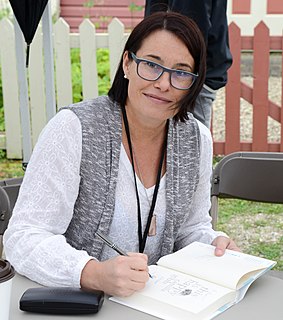A Quote by Ben Lerner
What interests me about fiction is, in part, its flickering edge between realism and where a tear in the fabric of a story lets in some other sort of light.
Related Quotes
As you see, I bear some resentment and some scars from the years of anti-genre bigotry. My own fiction, which moves freely around among realism, magical realism, science fiction, fantasy of various kinds, historical fiction, young adult fiction, parable, and other subgenres, to the point where much of it is ungenrifiable, all got shoved into the Sci Fi wastebasket or labeled as kiddilit - subliterature.
You can, in short, lead the life of the mind, which is, despite some appalling frustrations, the happiest life on earth. And one day, in the thick of this, approaching some partial vision, you will (I swear) find yourself on the receiving end of - of all things - an "idea for a story," and you will, God save you, start thinking about writing some fiction of your own. Then you will understand, in what I fancy might be a blinding flash, that all this passionate thinking is what fiction is about, that all those other fiction writers started as you did, and are laborers in the same vineyard.
For me, seeing our history told in this light, the ones who did rebel, the ones who did revolt, the revolutionaries, excited me. Seeing this story of the Underground Railroad ... and that is such a proud part of our history that not a lot of us know about, where these brave men and women, they were heroes, really helped tear down the system of slavery just by running.
Greek architecture taught me that the column is where the light is not, and the space between is where the light is. It is a matter of no-light, light, no-light, light. A column and a column brings light between them. To make a column which grows out of the wall and which makes its own rhythm of no-light, light, no-light, light: that is the marvel of the artist.
Once you step inside, history has to be rewritten to include you. A fiction develops a story that weaves you into the social fabric, giving you roots and a local identity. You are assimilated, and in erasing your differences and making you one of their own, the community can maintain belief in its wholeness and purity. After two or three generations, nobody remembers the story is fiction. It has become fact. And this is how history is made.
With faith . . . we must walk to the edge of the light and into the darkness. As we so walk I testify and promise that the light will move. When I was your age and wondering some of the exact same things that you are now wondering, I never would have imagined that someday [we] would be at Ricks College serving as we are. . . . I know the light moves as we walk in faith to the edge of the light.






































